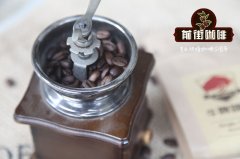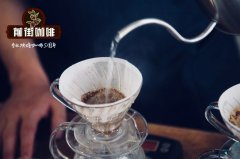How do professional baristas become-what's the point of getting a barista certificate?

Professional coffee knowledge exchange More coffee bean information Please pay attention to coffee workshop (Weixin Official Accounts cafe_style)
If you ask me, why do I need to take professional coffee courses?
The establishment of any system is actually the formation of learning methods. Therefore, it is quite inefficient to repeat behaviors without thinking and digestion with practice time alone, and even misleading.
Training system, can give coffee professionals coffee shop or coffee lovers tailor-made some appropriate training courses, and through training courses to develop some good learning methods, thinking habits and guiding exercises.
How are professional baristas made?
Step 1: Establish basic senses and learn sensory analysis (Cuptester)
Simply put, it uses the basic sensory organs (taste, smell, touch, vision and hearing) as measurement tools to describe and evaluate coffee. For example, if you smell coffee with flowers, then this cup of coffee is relatively good from the olfactory point of view, you can evaluate it as a cup of coffee with flowers. To have the ability to evaluate coffee, we need to go through classroom training and practice, after a course such as half a day or a day of olfactory training and teacher correction, you will be exposed to a lot of beans, and finally you will have this "ruler" to evaluate coffee, to quickly distinguish between positive and negative flavors in coffee.
However, without systematic learning or sensory correction by the barista or brewer, it is difficult for him to describe coffee correctly and discover what makes coffee taste negative. In this way, whether making espresso or hand-brewed coffee, without the above sensory organs to judge coffee, the so-called brewing time, proportion method will become pale, because it is impossible to distinguish what is good coffee and what is problematic coffee.
Supplement: Sense is a measuring tool, and make it accurate.
Related Courses: SCA CUPPING
Step 2: Learn the theory of coffee grinding and extraction and some practical operations
Brewing and brewing coffee is simply "beans ground and brewed with water", so all brewing methods are based on grinding extraction, Italian concentrator is also, hand brewing is also. In layman's terms, you choose to break up the coffee beans, put them in your porridge pot, boil them with water, and remove the dregs before drinking. Or use a "coffee shop machine" that specializes in fast coffee extraction to extract the liquid from the coffee. Either way, do you control your variables? There are many things involved: temperature, time, powder thickness, water content, etc. These are the second steps in learning coffee.
Supplement: The significance of grinding extraction lies in the use of appropriate grinding extraction based on the correct sensory, maximizing the advantages of coffee, we want MAX, not flat.
Related Courses: SCA Grinding and Extraction
Step 3: Become a skilled hand brewer, espresso maker brewer, and use a variety of coffee equipment.
Because hand brewers and espresso brewers are based on grinding and extraction, coffee practitioners generally operate both at the same time, and baristas play a role in the coffee system. We need to:
1. Use scientific methods to adjust the grinding and brewing methods of different brewing appliances to make coffee flavor show to the best.
2. Be able to operate machines and appliances skillfully in practical work.
3. Direct contact with customers to provide quality service to customers.
Related Courses: SCA Barista (Beginner, Intermediate, Advanced)
Many friends will consult, in addition to the above content, there are raw beans and baking knowledge need to learn? Our answer is: the more comprehensive it is, the more beneficial it is for our career, but we also need to choose according to our own career planning. There are many very good coffee tasters and baristas in the industry, and there are many very good coffee roasters.
I would like to share with you the coffee training path that I am still continuing, and a little immature experience. The courses I attended include interest classes and professional classes. I call those classes that do not take exams and do not get certificates collectively as interest classes, and those that can be verified collectively as professional classes.
interest class
Before formally accepting professional coffee course training, I attended some interest classes first. Although these interest classes were short in time and simple in content, they were helpful for better absorption in the subsequent professional courses. It's like studying abroad. Before you go to a professional class, you have to make up for your language foundation. I have attended a lot of interest classes, coffee basic theory, flower pulling class, hand washing class, and a sensory evaluation class with high difficulty coefficient in interest classes (3 days in a row, blind taste, cup test rotation, tongue directly drunk to paralysis).
Coffee Basics: This is my first coffee lesson, describing the entire coffee industry from seed to cup, the links involved, and the factors that affect the final flavor of coffee. I think such a basic course is very necessary, we usually always selectively intercept the information we are interested in, but often ignore some important information that we don't care about originally. For example, at first I only focused on cafes and baristas, but now I pay more attention to the origin of coffee beans, altitude, and processing methods. Of course, in addition to theoretical knowledge, there will also be many practical parts, integrating the experience of seeing, tasting, smelling and touching various senses. Although I am not very good at drinking, I know the process of cup testing; although I am not rich in taste, I understand that there are three types of acid; although I do not have the ability to identify fire crystals, I know that coffee beans need to be selected by the naked eye or tools. The one-day course, which costs about 600 yuan, is worth listening to for coffee lovers who are on the verge of getting started.
Flower pulling class: The existence of flower pulling class is to pursue a higher level of experience-visual enjoyment after satisfying the taste demand. However, it turns out that the difficulty of coffee flower pulling far exceeds my imagination. Perhaps we are too relaxed and calm when watching the barista operation in the cafe, but we don't know that behind this simple action of dozens of seconds is countless time stacking. If you are talented, you can still learn to pull a love through an experience class. The worst results, but also at least understand and learn the Italian coffee operation process, correct their own homemade latte, cappuccino many mistakes. The course lasts about 3 hours and costs about 300-350 yuan.
Hand washing class: In my opinion, hand washing class is the most practical interest course, as long as you can accept hand washing, drinking high-quality coffee at home is definitely not a dream. Good coffee beans have been purchased in all directions, as long as the brewing process is slightly adjusted, their own hand-brewed coffee can also be comparable to the coffee shop level. I have also taken courses on the use of different brewing instruments, V60, Philharmonic pressure, siphon pot can be played once, curiosity also walked all over again, save the impulse price of curiosity grass. So it seems that the cost of 300-350 yuan a class is worth it.
Sensory evaluation: This course is not offered by all training institutions. I am very lucky to be a student of Mingqian's first sensory evaluation course. I specially took a day off and completed the 3-day course. These 3 days of course content is very rich, to sum up, is to change the pattern "toss" tongue, not only Mingqian home all beans drink n times, eat sour, milk, chocolate, can help the tongue improve coffee taste food all play. It has to be said that under such high-intensity intensive training, it is indeed very helpful to identify some conventional flavors, and from the perspective of sensory perception, lemon, berry, citrus, apple, caramel, chocolate and other commonly used flavor descriptions such as ink on rice paper, the imprint gradually clear, jumping in the mind. While being able to distinguish good flavors, he also had an unforgettable impression of defective flavors (the flavor of defective beans not only made the whole person bad, but also the whole house was bad!) Sensory Tasting is like a mini Q-Grader course, or a pre-Q-Grader class, for coffee lovers who want to improve their coffee tasting skills or have ambitious Q-Grader exams.
professional courses
Once upon a time, there were two world-class authorities in the coffee industry, one called the European Coffee Boutique Association (SCAE) and the other called the American Coffee Boutique Association (SCAA). Is there a big difference between these two associations? In my opinion, no. Therefore, in January 2017, they officially merged, and the merged name is also easy to remember-SCA (official pronunciation: "schua"), completely removing the regional logo. SCAE and SCAA have their own exams and certificates respectively. After merger, there seems to be no big change from the curriculum, except that the logo on the certificate has been updated. The only professional training courses I've taken so far are SCAE's Barista Skill and Brewing.
I think it's a good thing that more and more people like exams and certifications, which proves that more and more people are paying attention to this matter. But a lot of times people ask questions about exams and then they leave it alone. The reason may be price or value. Today I will share with you some of my simple views on textual research.
Texts don't prove how good you are.
At present, SCAE is divided into three levels: "foundation","intermediate" and "Professional". The three levels have different requirements for knowledge mastery points. Of course, the difficulty is increasing. Generally speaking, the beginner and intermediate level will be arranged together, while the advanced level will have to wait until the intermediate certificate is obtained before they can register. The content of the assessment does not necessarily indicate how good you are.
For example, in the Intermediate course of Barista Skill, the teacher requires that everyone can master basic flower pulling and be able to send dense and qualified milk bubbles. For baristas with long bar experience, this is not a very difficult thing, even to make very complex patterns, but for some new baristas or people who do not usually touch espresso coffee, this is a challenge. But as long as they both produce acceptable foam and patterns, they will be considered to have passed the exam-of course, this is only part of the exam. But they all get the same certification, so can you say they're equally good at making coffee? This is a basic competency test. Even if the WBC champion is taking this course with you today, you will still receive the same certificate, proving that you have passed the corresponding level of the test. If you want to prove how good you are at making coffee, the best way is to compete, not to take a certification exam.
Then why did you test it?
Just like all kinds of examinations from childhood to adulthood, textual research for me only tells me the degree of mastery of knowledge or skills. The standardized examination system allows baristas to understand their own abilities, what is lacking, and where there are deficiencies. For example, passing the Barista Skill exam, we should focus on the finishing of the bar and the speed of production. The purpose of the exam is to let baristas discover their shortcomings, which should be paid attention to in the future work.
What is the significance of textual research?
As more and more people understand coffee, cafes have become an indispensable building in the city. When people often go to restaurants, we will find that the quality of coffee shops is mixed. Some cafes have good coffee, baristas are very serious, bar is clean and tidy, and there is affinity, while some cafes coffee production is often unstable, baristas are very casual when making coffee, bar is placed in disorder or even dirty, and put on a cold attitude. Is this what we want to see? It must not be.
Textual research is a benchmark, a norm or an industry standard. What we're gonna do, what we're not gonna do. Or Q-grade test, sensory is a very subjective item, the same cup of coffee we will have different feelings and understanding, if it is a small range of differences, it can be accepted. But if there's a huge gap, we have to do flavor correction, and the people who do it are the people who pass the Q test or the people who pass the sensory test. At this time, the normative function represented by the certificate appears.
SCAE's curriculum is as follows:
By comparison, we can see that we don't seem to find any practical courses for baristas in SCAA courses. In China, only the third class in the second row can get SCAE.
To learn more about the course, please visit sca.coffee/education-1/
The learning process allows us to grow.
A friend of mine once said,"Fine coffee should be something to share, not something to build behind closed doors." Only contact with more people can better share the concept of fine coffee, and different voices can lead to more thinking progress. Coffee from the "shepherd's legend" to the "third wave of coffee wave" experienced a long time, but from the "first wave of coffee wave" to now, but also a hundred years, people in the continuous pursuit of good coffee we have been thinking, communication and forward, which is not without the sharing spirit of predecessors, teachers and champions. Harvesting the right theory can make us more determined on the road to fine coffee.
So for me, the value of textual research is not the certificate itself, but the more meaningful and valuable things it brings to me, the affirmation of my career, and the reason why I love this industry more and more.
What classes can coffee lovers take?
From a practical point of view, I think coffee lovers can take the Brewing course first, because we may not make espresso at home very often. The reason…
1. Home semi-automatic coffee machine itself has many shortcomings, and commercial semi-automatic coffee machine family use needs certain conditions;
2. Open a semi-automatic coffee machine, at least half a day busy;
3. And an espresso grinder--
So every time I turn on my semi-automatic coffee machine, I'm expecting company. Friends who can drink lattes at my house are all true love! After the Brewing course, you can also consolidate your practice at home. If you can update the coffee brewing methods that the coffee gods are constantly improving, I believe that after a certain period of accumulation, the coffee you produce at home will definitely not lose to many cafes outside.
Important Notice :
前街咖啡 FrontStreet Coffee has moved to new addredd:
FrontStreet Coffee Address: 315,Donghua East Road,GuangZhou
Tel:020 38364473
- Prev

How long does it take to learn to pull flowers in coffee? The world baristas share the learning experience of coffee drawing.
Professional coffee knowledge exchange more coffee bean information Please pay attention to the coffee workshop (Wechat official account cafe_style) bean grinder running briskly, like a wonderful prelude to the movie opening, the fragrant milk foam smoke in the air is the most dramatic natural foil. When the flower puller was expected by everyone, he skillfully picked up the foam steel cup and announced the opening of Myra with the roar of the pressurized motor.
- Next

Barista training certificate which baristas usually earn enough to cover the tuition fees?
Professional coffee knowledge exchange more coffee bean information please pay attention to the coffee workshop (Wechat official account cafe_style) now baristas can take a lot of certificates: 1, there are our national barista grade exam 2, European Fine Coffee Association (SCAE) certified barista examination, American Fine Coffee Association (SCAA) certified various examinations, now SCAA
Related
- What is the meaning of lactic acid fermentation with coffee bean treatment?
- How to judge the state of foam by sound?
- How does the latte pull out the unicorn pattern? Come to get for a little trick to improve the flower pull!
- Will flower pulling affect the taste of the latte?
- Do you know the history of coffee?
- The difference between honey treatment and sun washing what is raisin honey treatment?
- What kind of milk can a novice use to make coffee foam to keep the foam longer? The correct method and skills of milking tutorial sharing
- Why do washed coffee beans taste sour? Flavor characteristics of washed Coffee
- Introduction to the skill of how to practice the size and height of water injection around the circle of hand-brewed coffee
- How do beginners practice coffee flower drawing from scratch?

